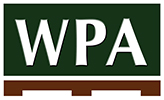A newsbrief from our WPA magazine editor:
Good news for the wood pallet industry. As the global situation continues to unfold and governments have taken positive steps to limit public interaction, concerns about packaging have arisen regarding the transmission of COVID-19. As FDA has stated, however, "there is no evidence of food or food packaging being associated with the transmission of COVID-19." The Reusable Packaging Association released a statement today stressing that "Reusable packaging in commercial operations is managed in a system that ensures its integrity for the intended purpose, including effective sanitation for food packaging."
From NWPCA: Statement on COVID-19 on Wood Packaging Surfaces
Read FAQs for pallet providers on the FDA Final Rule.
COVID-19 updates:
NWPCA: Corona Virus webpage
CDC: Coronavirus Disease 2019 (COVID-19)
CISA: Guidance on the Essential Critical Infrastructure Workforce
AFRC: COVID-19 Resources
CWPCA: "by all reports, our industry and those who supply it are to be considered as essential. It is important to note that the essential services rules are punishable by law, and in Ontario, those laws are to be enforced by the Ontario Provincial Police (OPP). It is unclear at this time who the responsible agency will be in Quebec. The amounts of the fines for disobedience are also unclear. However, we have already received notice of a CWPCA member having their delivery truck pulled over by the OPP and being issued a warning.
As such, we wish to advise members in Ontario and Quebec to ensure that staff are able to describe clearly what they do, and why their role is essential to the supply chain, as well as other essential service sectors (you may cite your relationship with industries like food, pharmaceutical, essential consumer goods (toilet paper), medical equipment etc). You may also want to equip your staff with letters which detail what your company’s operations are and how your company and staff fit into the essential services category." - This is good advice for all including Washington, California, and Oregon.
Critical State Updates:
Oregon Governor Brown issued an executive order today, March 25th, effective immediately, directing everyone in Oregon to stay at home to the maximum extent possible and adding to the list of businesses that will be temporarily closed to stem the spread of COVID-19 in Oregon. You can read the full order here. It is important to note: The good news - forest product businesses are not on the list of mandated business closures and may remain open subject to social distancing conditions.
Washington Governor Inslee signed a statewide proclamation on March 23rd, effective March 25th, for all Washingtonians to stay at home for the next two weeks. This order is similar to in California. Read: Inslee’s full list of essential critical infrastructure workers
California Governor Newsom issued Executive Order N-33-20 on March 19, 2020, directing all residents immediately to heed current State public health directives to stay home, except as needed to maintain continuity of operations of essential critical infrastructure sectors. Wood products manufacturers are listed as essential. Here is the full list.
Pennsylvania Governor Wolf's office has amended its list of companies permitted to work as "life-sustaining business only" to now INCLUDE sawmills. The change came late Saturday and sawmills join logging and forestry.
Veneer plants and secondary wood processing are ordered to close but can apply for a waiver to operate.
New York 's state Department of Agriculture and Markets has revised the guidance for "Essential Businesses" to include forest products and those involved in forestry operations, logging, manufacture of lumber and paper products, and the distribution of those products are "essential and exempt from the State's guidance for workforce reduction."
Ohio Governor DeWine issued a stay-at-home order on Sunday and that only essential businesses as defined by the Homeland Security document (which includes forest products) are permitted to stay open. The governor said "these are generally the accepted businesses that are essential for us to continue to live." The order goes into effect at 11:59 p.m. Monday and will remain in effect until April 6.
Congressional Action on COVID19 -
COVID I: The President signed an $8.3 billion supplemental (COVID I) on March 6th, mostly focused on immediate response to the pandemic. There was no Forest Service or BLM funding in this bill.
COVID II: This was signed by the President last week, establishing paid sick leave (reimbursable by the Federal government) for most business under 500 employees, expanding food stamps and medical spending.
COVID III: A massive economic stimulus package failed a procedural vote on the Senate floor Sunday and again today. Negotiations between the White House and leaders in the Senate and House are ongoing. This $1.6 Trillion bill includes direct payments to most Americans, support for impacted businesses, and additional unemployment funding. It also includes just over $70 million for the Forest Service, however, it is mostly for cleaning and disinfecting of both recreational facilities and Forest Service offices.
COVID IV: Congress will likely consider additional stimulus measures. This will be the opportunity to push for increases in key Forest Service/BLM programs to help boost timber production in out years, as well as address road maintenance problems that frequently contribute to no bid timber sales.
